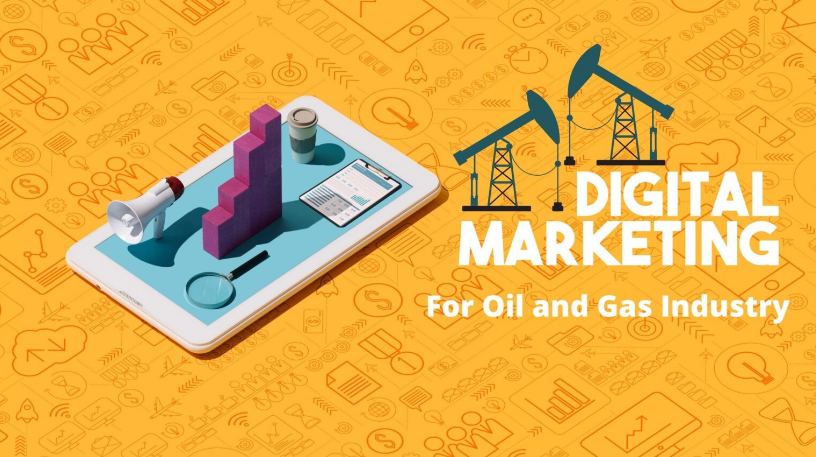The oil and gas industry is one of the most competitive sectors globally. As a provider within this space, maintaining a competitive edge isn’t just beneficial — it’s essential to your long-term success. With evolving consumer behaviors and a heavy reliance on technology, digital marketing has become a vital tool for oil and gas companies looking to differentiate themselves, generate new leads, and build sustainable growth.
In today’s landscape, online marketing provides one of the most powerful avenues to reach potential clients and decision-makers. With the right strategies in place, your oil and gas company can connect with current and future customers where they spend most of their time — on their smartphones, tablets, and computers.
What is Oil and Gas Marketing?
Oil and gas marketing refers to the process of promoting your company’s products, services, and brand to attract and retain clients. Traditionally, this could involve print ads, trade shows, and word-of-mouth referrals. However, the modern marketing landscape has shifted dramatically.
Today, digital marketing plays a pivotal role. Tactics like search engine optimization (SEO), pay-per-click (PPC) advertising, email marketing, content marketing, and social media marketing are critical for companies aiming to remain visible and competitive. Effective digital marketing doesn’t just create awareness — it builds trust, nurtures relationships, and converts interest into lasting partnerships.
Why Does Oil and Gas Digital Marketing Matter?
Implementing a strong digital marketing strategy can make the difference between growth and stagnation in the oil and gas sector. Here’s why:
1. Staying Ahead of the Competition
Competition in the oil and gas market is fierce. New entrants, innovative technologies, and changing regulations constantly shift the landscape. Without a solid online presence, your company risks falling behind more agile competitors.
Digital marketing strategies — such as ranking high in search engine results, running targeted ad campaigns, and engaging audiences on social media — can help your business stand out. A robust digital footprint not only increases visibility but also positions your company as a trusted authority in the industry.
2. Meeting Customers Where They Are: Online
The search demand for terms like “oil company” and “gas company” is substantial, receiving approximately 11,500 and 118,000 monthly searches respectively. This shows that both individual consumers and corporate buyers are actively looking for oil and gas solutions online.
Through digital marketing, you can ensure your company appears prominently when potential clients are searching for services you offer. Incorporating user-friendly websites, online contact forms, active social media channels, and consistent email communication makes it easy for prospective customers to reach you and do business with you.
3. Building Strong Brand Awareness
In a crowded market, brand recognition is critical. Digital marketing enables you to establish and strengthen your brand image by clearly communicating your company’s mission, values, and unique value propositions.
Your website serves as a digital storefront, where prospective clients form their first impressions. A well-designed, informative, and engaging website sets you apart from competitors. Additionally, paid advertising like PPC ensures your brand name stays visible, reinforcing brand recall among your target audience over time.
3 Essential Oil and Gas Digital Marketing Strategies
While there are many digital strategies you can deploy, these three are among the most powerful and effective for oil and gas businesses:
1. Search Engine Optimization (SEO)
SEO is the foundation of any successful digital marketing plan. It involves optimizing your website to rank higher in search engine results, making it easier for clients to find your services.
Key components of effective SEO include:
- Keyword Research: Identifying valuable keywords specific to your industry and target market (e.g., “gas company in [city name]”).
- On-Page Optimization: Crafting compelling meta titles, descriptions, and high-quality content that aligns with targeted keywords.
- Technical SEO: Ensuring your site is mobile-friendly, fast-loading, and easy for search engines to crawl.
- Backlink Building: Earning authoritative backlinks from reputable sources to enhance your website’s credibility and ranking potential.
With proper SEO practices, your website can become a magnet for organic traffic, consistently attracting potential customers without the need for continuous ad spend.
2. Pay-Per-Click (PPC) Advertising
PPC advertising allows your company to instantly place ads in front of your most valuable audiences — those already searching for your services.
Key advantages of PPC include:
- Precise Targeting: Reach customers based on keywords, location, demographics, and even online behavior.
- Cost Control: You only pay when someone clicks on your ad, and you can set daily or monthly budgets to manage costs.
- Speed to Market: Unlike SEO, which builds over time, PPC can start driving traffic immediately.
For example, if you set a bid of $0.45 per click for a “local oil delivery service” ad, and competitors bid lower, your ad will appear prominently. You pay only when users engage, making PPC a highly cost-effective way to generate leads quickly.
3. Email Marketing
Email marketing remains one of the highest ROI digital marketing strategies available today. It allows you to nurture relationships over time and stay connected with both current clients and prospective leads.
Effective email marketing for oil and gas companies can include:
- Newsletters: Share company updates, project milestones, or industry news to keep your audience engaged.
- Promotions: Highlight special offers, seasonal deals, or new service launches.
- Educational Content: Provide insights into market trends, new technologies, or tips to help your clients succeed.
By consistently appearing in your clients’ inboxes, you position your company as a trusted resource and ensure you remain top-of-mind when they need your services.
Conclusion
In today’s competitive oil and gas market, a strong digital marketing strategy is no longer optional — it’s essential. By leveraging SEO to increase organic visibility, PPC to drive immediate results, and email marketing to build lasting relationships, your company can strengthen its brand, outshine the competition, and achieve sustainable growth.
Ready to elevate your digital marketing efforts and fuel your company’s future success? It’s time to start implementing these proven strategies today.

